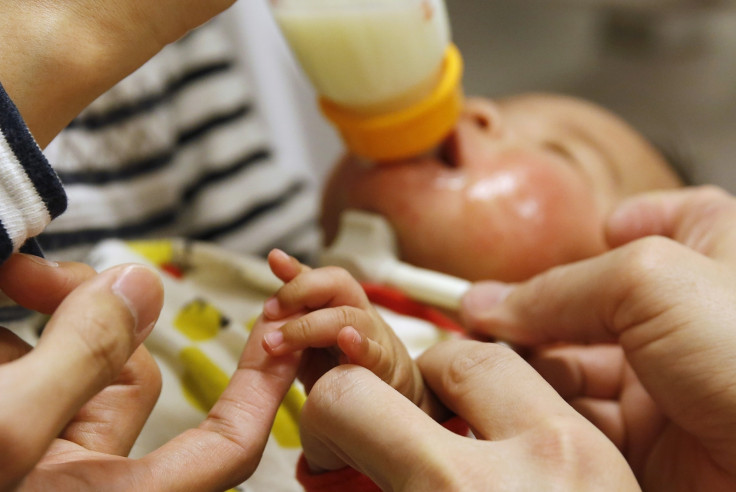Sex-related internet searches spike over Christmas, with more births reported 9 months later
Human sex cycles may be driven by cultural not biological factors.

Analysis of internet search terms has revealed that interest in sex peaks significantly during major cultural or religious celebrations, a phenomenon which also corresponds to an increase in births nine months later.
Previous research has observed that birthrates tend to peak around September – nine months after Christmas – with some studies citing biological reasons. But a new study, published in the journal Scientific Reports, suggests the explanation is rooted instead in culture.
Researchers trawled through the "collective unconscious" of web searches and social media posts, which can often shine a light on our hidden desires and motivations. They focused on sex-related terms from nearly 130 countries between 2004 and 2014.
"The rise of the web and social media provides the unprecedented power to analyse changes in people's collective mood and behaviour on a massive scale," said Luis Rocha, co-lead author of the study at Indiana University.
"This study is the first 'planetary-level' look at human reproduction as it relates to people's moods and interest in sex online."
They found that the spikes in sex-related search terms during major holidays could be observed across cultures. The greatest increases were seen during Christmas in Christian-majority countries and Eid in Muslim-majority countries.
Eid was particularly significant because the holiday does not fall on the same day every year but researchers were still able to observe an increase in sex-related search terms shifting accordingly.
In addition, the fact that peak birth rates and online interest in sex did not change based on geography – despite the seasons being reversed on opposite sides of the globe – led the researchers to conclude that the patterns in the data were likely to be caused by cultural factors not by biological shifts due to changes in daylight, temperature or food availability.
"We didn't see a reversal in birthrate or online interest in sex trends between the northern and southern hemispheres - and it didn't seem to matter how far people lived from the Equator," Rocha said.
"Rather, the study found culture - measured through online mood - to be the primary driver behind cyclic sexual and reproductive behaviour in human populations."
Researchers also analysed the sentiment of online posts during the holidays and found that people seemed happier, safer and calmer during the Christmas period. Holidays such as Easter and Thanksgiving did not appear to generate the same apparent changes in mood and spikes in online interest in sex.
"We observe that Christmas and Eid-Al-Fitr are characterised by distinct collective moods that correlate with increased fertility," Rocha said.
"Perhaps people feel a greater motivation to grow their families during holidays when the emphasis is on love and gift-giving to children. The Christmas season is also associated with stories about the baby Jesus and holy family, which may put people in a loving, happy, 'family mood'."





















